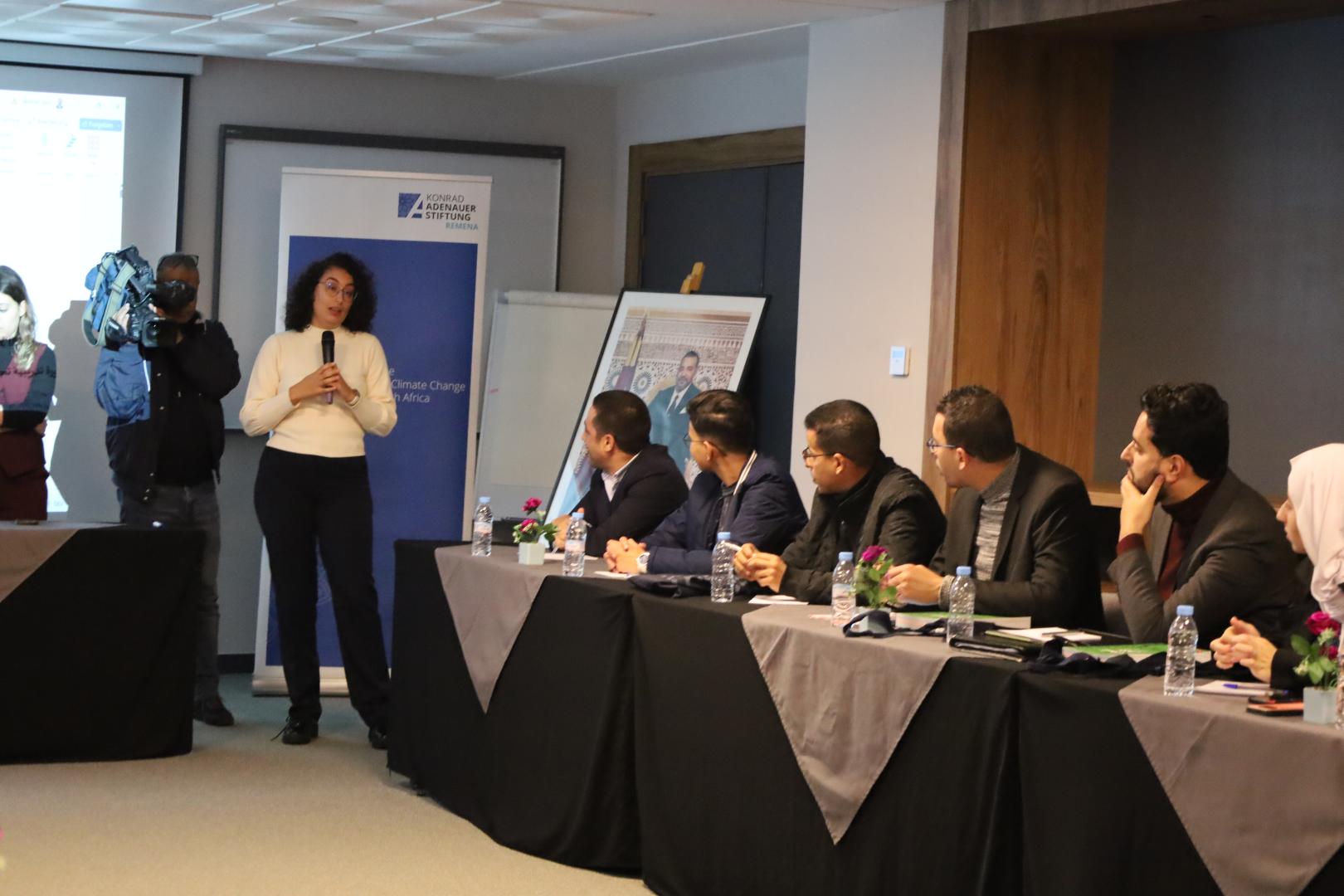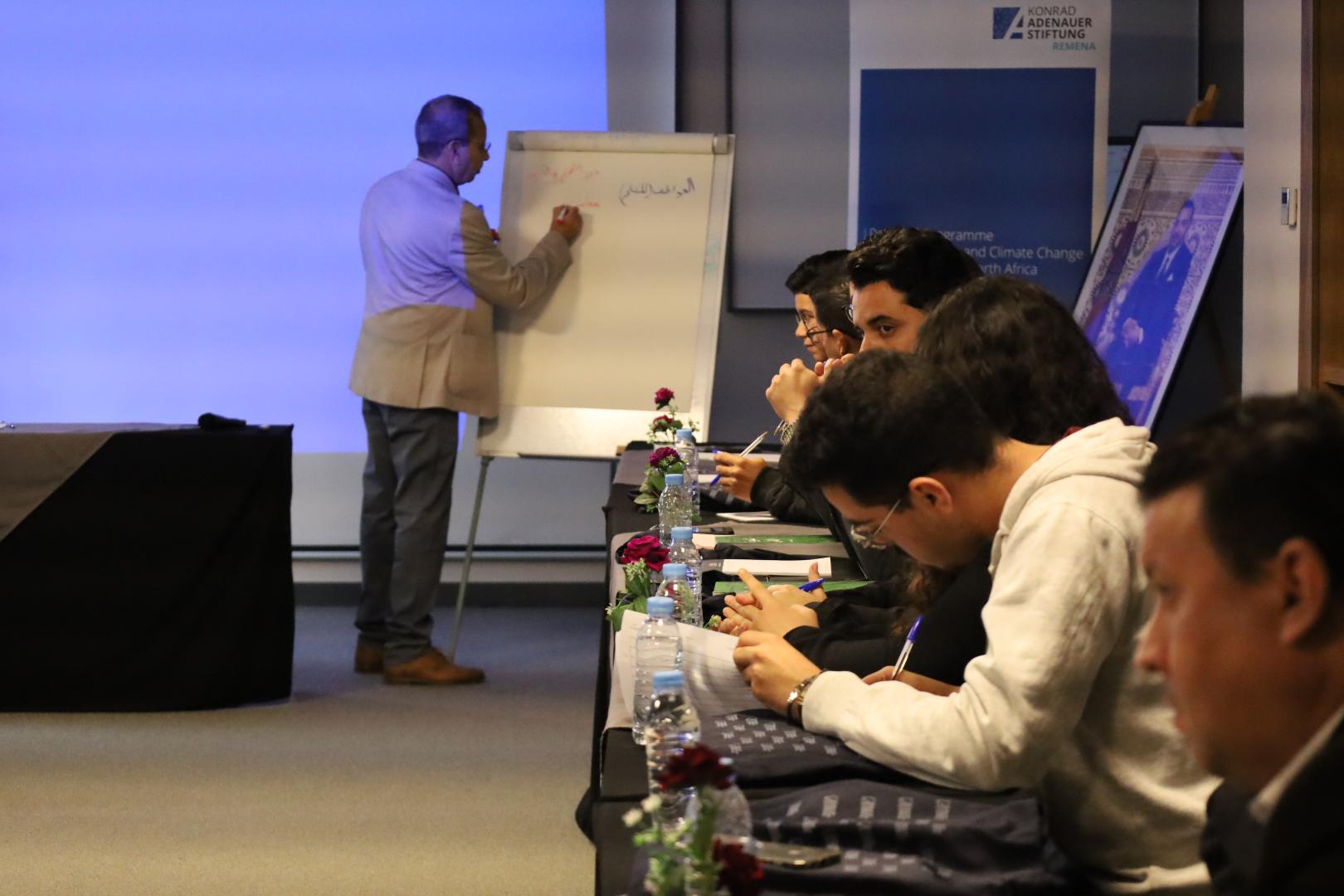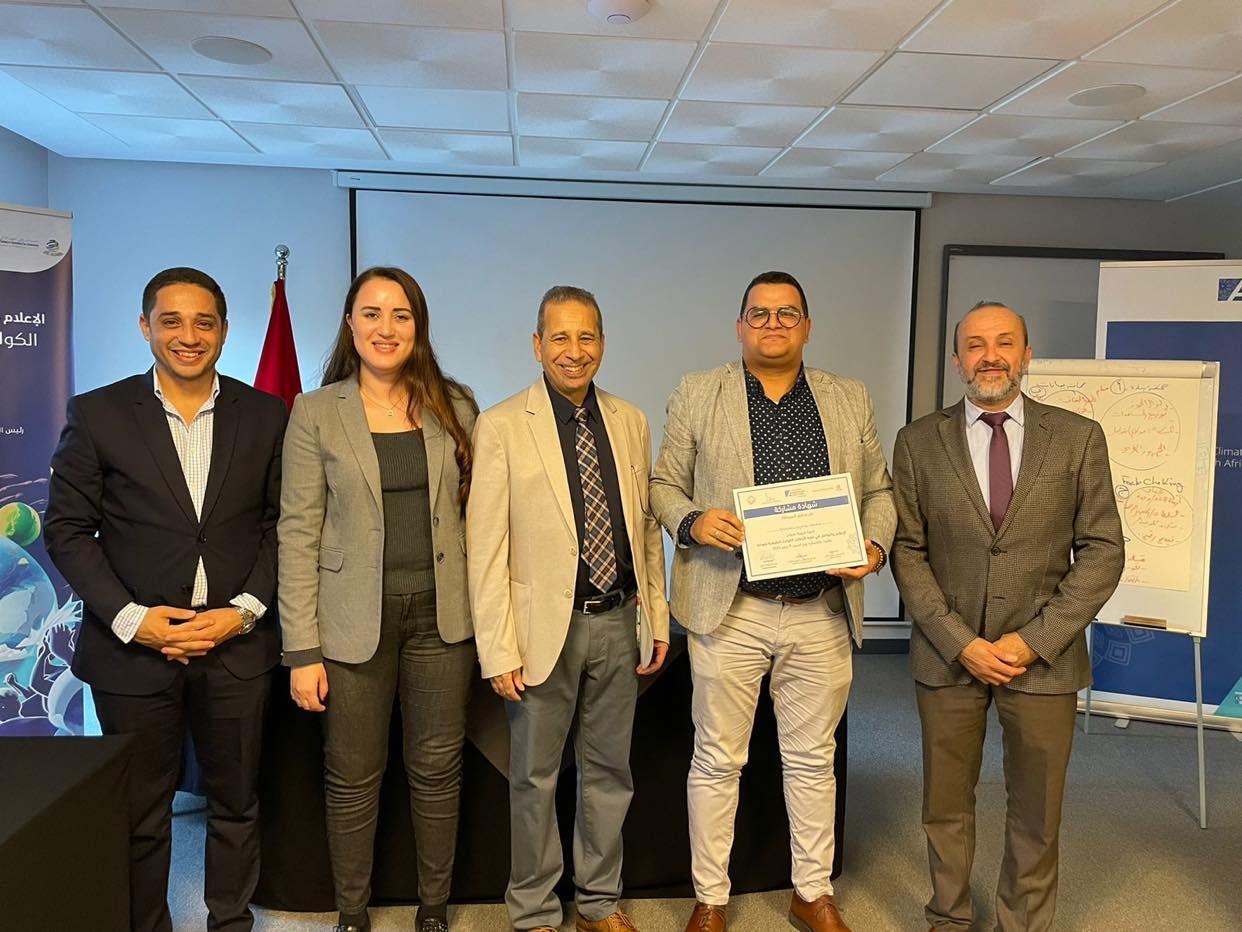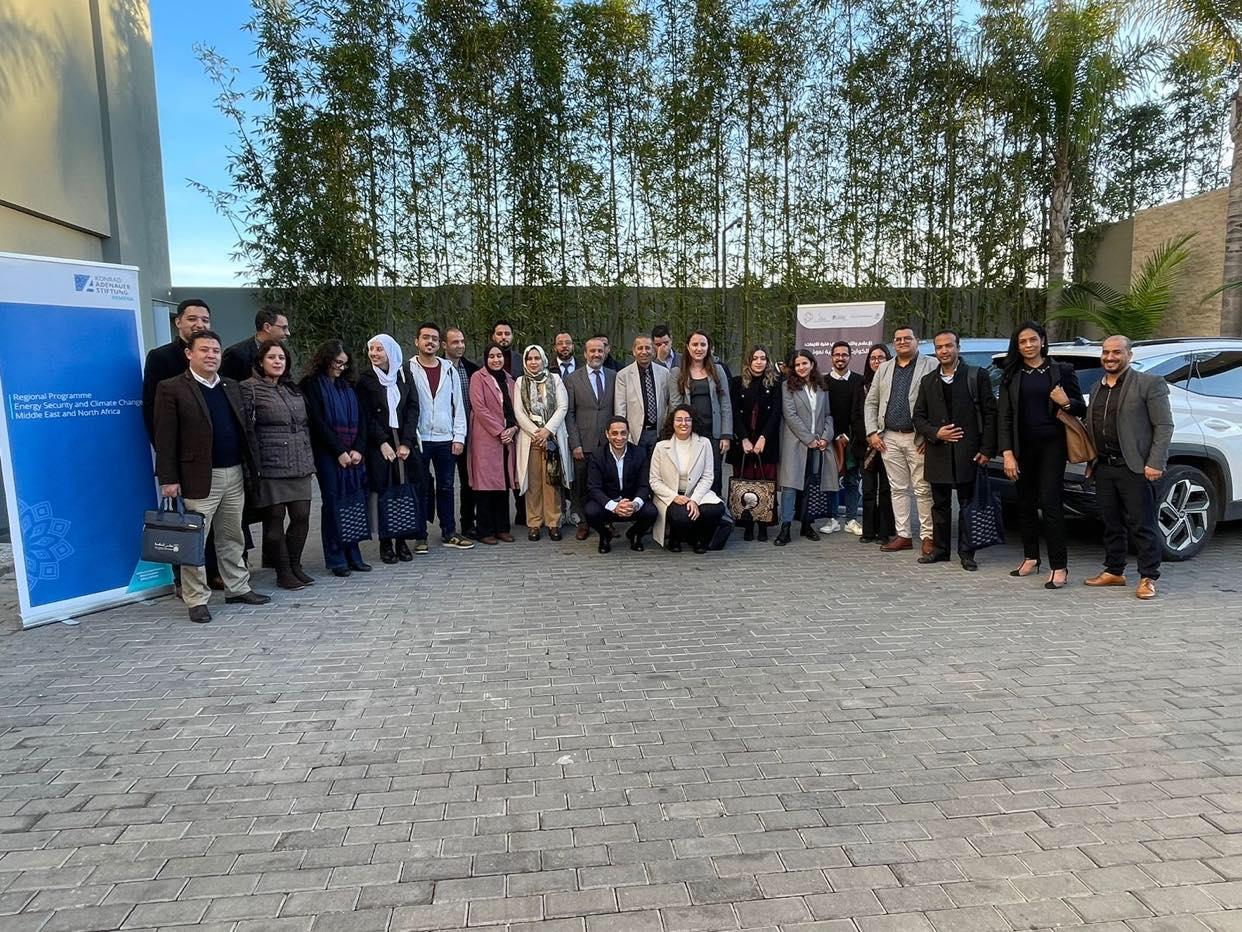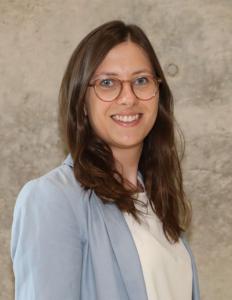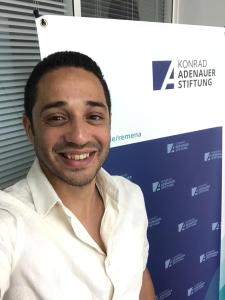Workshop
Details
The Regional Program for Climate Change and Energy Security of the Konrad-Adenauer-Stiftung in collaboration with the Center for Doctoral Studies in Journalism and Modern Media at the Faculty of Languages, Literatures, and Arts at Ibn Tofail University in Kenitra, and the Graduates Association of the Higher Institute of Information and Communication, organized a training day titled "Media and Communication in Times of Crises: Natural Disasters as an Example" on Saturday, December 9, 2023, in Kenitra.
The training targeted PhD students in journalism with the objective to enhance their skills in covering crises resulting from climate change and to highlight best practices in this regard, providing guidance and effective strategies for media management during natural disasters linked to climate change. To achieve these objectives, the training was organized in two parts: the first comprised several theoretical sessions, while the second focused on the practical application to implement the concepts introduced in the initial phase.
The first part of the training delved into the historical background of the training’s topic, providing several examples of natural disasters that have marked the world in the last decade. Emphasis was placed on the significant role played by media coverage and communication in alleviating these crises. The challenges faced by journalists in such coverage, particularly with the difficulty and uniqueness associated with natural disasters resulting from climate change, were highlighted. The importance of tackling misinformation and fake news was also addressed, explaining how to avoid transmitting false information to the public. The accuracy of transmitted information was stressed for its crucial role in influencing the promptness of decision-making for policymakers and shaping societal reactions. The importance of journalistic neutrality was underscored, emphasizing that personal sentiments should be set aside when covering such events.
The training subsequently allowed participants to experience the various stages involved in journalistic coverage through practical exercises illustrating how journalists can cover and communicate events related to natural disasters caused by climate change. Exploring different journalistic formats (reportage, articles, blogs, etc.) helped participants understand the difficulties associated with each type and how to adopt a different style for each genre. Practical exercises also brought attention to the importance of creativity and marketing skills that journalists must acquire to effectively convey their message, especially in a world inundated with information.
Participants of the training thus gained in-depth knowledge of techniques for successful communication and coverage during natural disasters and climate change. The training also served as an opportunity to raise awareness about the effects and consequences of climate change that the world is currently experiencing. Future journalists play a crucial role in informing, communicating, and sensitizing all stakeholders, with a proactive role in raising awareness and informing about the dangers that such disasters can pose.



